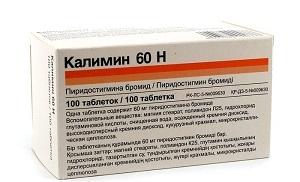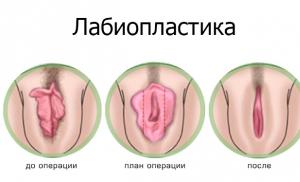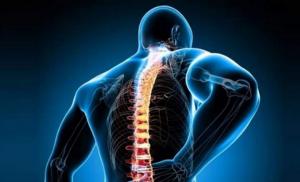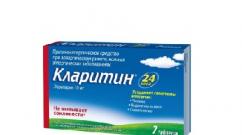Weakness, absent-mindedness, memory impairment. Bad memory
The concept of normal memory does not exist. The norm here can be understood as a set of information that under normal conditions a particular person is able to keep in his head. There are no upper limits to memory, although there are people with super memory, which is capable of recording the smallest nuances of all events and things, but this is quite rare.
Memory is the ability to receive, store and reproduce information that a particular person receives throughout life. It is necessary to understand that the concept of memory has both a physiological and cultural basis.
Human memory can be divided into long-term or short-term. The relationship between these types of memory is individual for all people; with predominant long-term memory, it is difficult for a person to learn, but the learned information remains with him forever, and with the short-term version, the opposite is true - what was learned on the fly after reproduction is instantly forgotten.
All this does not raise any questions throughout life, unless at some certain point the memory begins to deteriorate. Forgetfulness also comes in different types, each of which has a different effect on remembering different information.
Reasons for deterioration
There are many reasons for memory deterioration, but they are all divided into age-related changes, those reasons that are associated with brain damage, those that arise due to various diseases of other organs, the consequences of intoxication processes and those that arise due to external negative factors.
Causes associated with direct damage to the brain itself as a human organ include traumatic brain injury, acute circulatory disorders or stroke, and various oncological problems in this organ. External factors that adversely affect memory include insufficient sleep, various stresses, changes in living conditions, and increased brain load. Chronic intoxication processes that cause forgetfulness should be understood as conditions that are provoked in the human body by alcoholism, smoking, drug addiction, abuse of tranquilizers and other pharmacological drugs.
Human memory is directly dependent on various modalities. The modality can be visual, auditory, motor. Modalities can also be combined in different proportions with each other. This determines how it is easier for a particular person to remember information. Some people prefer to learn something by saying information out loud, others find it easier to remember what they read, others must see a page with text or graphics that contains the material. Different parts of the human brain are responsible for different memory-related functions. The sections in the temple area are responsible for the auditory perception of speech or sounds, the occipital-parietal zone is responsible for spatial and visual perception. In the left hemisphere, visual perception is focused on letters and objects, and in the right hemisphere, on optical-spatial, color and facial perceptions. The inferior parietal zone is responsible for the functionality of the hands and the speech apparatus, which, when damaged, leads to astereognosia, that is, the inability to identify an object by touch. Thus, we can conclude that it is precisely the type of memory that is disrupted that is characteristic of a certain affected area of the human brain.
 Modern research has a lot of evidence regarding the theory that hormonal levels greatly affect the thought process and memory. These processes can be positively influenced by hormones such as testosterone, vasopressin, estrogen, and prolactin. Hormones contribute to the transformation of short-term memory into long-term memory, but not all. For example, oxytocin, on the contrary, significantly weakens the process of remembering information, causing forgetfulness in women during breastfeeding and after childbirth.
Modern research has a lot of evidence regarding the theory that hormonal levels greatly affect the thought process and memory. These processes can be positively influenced by hormones such as testosterone, vasopressin, estrogen, and prolactin. Hormones contribute to the transformation of short-term memory into long-term memory, but not all. For example, oxytocin, on the contrary, significantly weakens the process of remembering information, causing forgetfulness in women during breastfeeding and after childbirth.
Pathologies that impair memory
The most common diseases that significantly weaken the process of memorization are traumatic brain injuries. Deep and extensive injuries are more dangerous, since their severity is directly proportional to the process of memorization. With traumatic brain injuries in humans, retrograde and anterograde amnesia are common phenomena, characterized by forgetting not only the event in which the injury occurred, but also those that preceded or followed it. Also, traumatic brain injuries are characterized by the occurrence of hallucinations and confabulations. Hallucinations are understood as false events and images that could not happen in real life (naturally, they did not happen). Confabulations are false memories that the memory of a sick person brings up. Thus, when confabulations occur, the patient may, when asked about his actions in the past day, answer that he visited the theater, but in fact he was in the hospital ward because he was injured.
Memory deterioration very often occurs due to impaired blood circulation in the patient’s brain. With atherosclerotic vascular changes in the brain, blood flow to various parts of the brain decreases, which provokes a weakening of memory. In the modern world, atherosclerosis has ceased to be a disease of older people and is increasingly being diagnosed in a fairly young population. Atherosclerosis also provokes the development of acute circulatory disorders in the brain. This disease, known as a stroke, can affect various areas of the brain, cutting off blood flow to them partially or completely. The functionality of such zones is grossly disrupted, everything suffers, including memory.
Diabetes mellitus has similar effects on the processes of remembering information. A complication of diabetes mellitus can be angiopathy - a disease manifested in the thickening of vascular walls to the point where small vessels completely cease to function due to overlap, and large ones narrow significantly, slowing down blood flow. In this case, blood circulation is disrupted in every organ and system of the human body, including the brain. And any disturbance of blood circulation in the brain leads to impaired memory function.
If the memory function is impaired, we can conclude about the possible occurrence of diseases in the thyroid gland, which are characterized by an insufficient amount of hormones produced by it - hypothyroidism. Thyroid hormones contain up to 65% iodine. With this disease, along with memory deterioration, weight gain occurs, depression, swelling, apathy, irritability occur, and muscle tone becomes very weak. It is necessary to prevent iodine deficiency with an appropriate diet containing iodized salt, dairy products, sea fish, seaweed, nuts, persimmons, and hard cheeses.
 The inflammatory process in the meninges (meningitis) and in the substance of the brain (encephalitis) significantly affects the functioning of the entire brain as a whole. The most common causes of encephalitis and meningitis are neurotropic viruses and bacteria. Therapy for these diseases is very successful if they are detected in a timely manner, but memory impairment may remain in a person as a consequence of the disease.
The inflammatory process in the meninges (meningitis) and in the substance of the brain (encephalitis) significantly affects the functioning of the entire brain as a whole. The most common causes of encephalitis and meningitis are neurotropic viruses and bacteria. Therapy for these diseases is very successful if they are detected in a timely manner, but memory impairment may remain in a person as a consequence of the disease.
Degenerative brain diseases, such as Alzheimer's disease, are the least responsive to therapeutic methods. With this pathology, memory gradually but surely decreases, ultimately leading to a decrease in the patient’s intellectual abilities. The worst situation is when a person ceases to navigate in space and is unable to engage in self-care. Alzheimer's disease is common in older people after 70-80 years of age. It proceeds slowly, gradually, and in the initial stages is completely unnoticeable. Signs of pathology are decreased attention and memory failures. The patient begins to forget the last events that happened to him, and if you persistently ask about them, he will begin to replace them with memories from the past. All this leaves an imprint on the patient’s character, leading to increased selfishness, increased demands, capriciousness, and apathy.
If such diseases are not treated in a timely manner, a person ceases to navigate time and space, he does not know the current date, the place where he is, and does not understand what needs to be done when natural needs arise. Modern medicine considers Alzheimer's disease to be hereditary; if left untreated, it progresses sharply at a certain point, but if it is treated, its progression slows down and is quite mild.
However, memory deterioration is not always associated with brain damage; very often a person himself tries to forget troubles and fears, using psychological defense mechanisms, of which there are many. With the frequent use of these mechanisms, it may seem from the outside that a person suffers from memory disorders, but this is not the case. Such “forgotten” emotions and states have a bad effect on the nervous system, leading to aggressiveness, neuroses, and so on.
Treatment for memory loss
Memory impairment can be treated only after the cause of this process has been established. Medicines should be prescribed exclusively by doctors, as a rule, these are some nootropic drugs, such as:
- Glycine;
- Piracetam;
- Bilobil;
- Pantogam;
- Aminalon.
The course of treatment with these drugs is quite long, it is always reinforced by taking multivitamin complexes. Sometimes doctors prescribe physiotherapy to patients. In cases of memory loss, the electrophoresis procedure with intranasal administration of glutamic acid (preparations based on it) works effectively. Pedagogical and psychological correction techniques also effectively influence the restoration of memory when it declines - teachers teach patients to remember by training the unaffected functionality of the brain. If the patient is unable to remember words spoken out loud, he is taught to imagine a visual image of what was said, and then memorization becomes real. The complexity and duration of the learning process lies in the fact that it is important not only to teach a person to resort to intact connections and parallels of the brain, but also to bring this process to automaticity.
Memory deterioration reduces a person’s social skills and may indicate the development of other pathologies, being a poor prognostic symptom. Neurologists, neuropsychologists, and therapists treat pathologies associated with memory impairment. However, it is important to understand that very often when patients complain of memory impairment, they are actually suffering from deterioration in attention. This state of affairs is typical for schoolchildren and older people. This happens due to the underestimation of everyday information received by a person. Dealing with absent-mindedness and attention problems is difficult because people rarely realize that there is a problem, even if you tell them about it directly. The way out of this situation is to constantly work on your own perception of information - training attention and memory by recording information on paper, recording it in electronic devices, etc.
You can train the functioning of the brain using the American method of Professor Lawrence Katz, which promotes the activation of brain activity, the creation of new associative connections, involving various parts of the brain. The exercises of this technique include several practices. The specialist says that you should try to do your usual work with your eyes closed. Right-handed people are advised to start performing a number of everyday tasks (brushing their teeth, combing their hair, using a wristwatch) with their left hand, and left-handed people - vice versa. It is important to master at least the basics of sign language and Braille (writing and reading for people with visual impairments), and learn how to operate a computer keyboard using all 10 fingers. It is recommended to study any applied type of needlework from scratch in order to develop finger motor skills. By touch it is necessary to train to distinguish coins of different denominations. It is important to constantly learn something new and try to apply it to your own life - learn new languages, read articles on topics you don’t understand, meet different people, travel, discover new places. All these simple exercises perfectly train brain activity, and therefore memory, and therefore will ensure normal self-awareness for a long time.
Preventive measures
Memory impairment can also be prevented quite effectively. You should not wait until forgetfulness begins to bother you and you will have to look for the causes of its occurrence among various diseases. It is better to lead a certain lifestyle from a young age in order to remain in “solid memory” even in old age. All the recommendations given below will help keep not only your memory, but also your overall health in excellent condition, for which the body will thank its owner more than once throughout its life.
Proper and nutritious nutrition is the key to not only longevity, excellent health, but also excellent memory. The most undesirable foods in this context can be considered fatty, sweet and salty. The consumption of cinnamon, ginger, ginkgo biloba tincture and vitamin E has a positive effect on the psyche and brain function in general.
 Regular exercise has a great effect not only on your figure. At the same time, the gym, carrying weights and grueling workouts do not at all contribute to maintaining brain functionality. For long-term active work, and therefore for memory, leisurely walks in the fresh air are recommended, increasing the speed of blood circulation and its flow to the brain, as well as daily morning exercises, which trigger metabolic processes in the body.
Regular exercise has a great effect not only on your figure. At the same time, the gym, carrying weights and grueling workouts do not at all contribute to maintaining brain functionality. For long-term active work, and therefore for memory, leisurely walks in the fresh air are recommended, increasing the speed of blood circulation and its flow to the brain, as well as daily morning exercises, which trigger metabolic processes in the body.
Giving up bad habits - alcohol and cigarettes - entails strengthening the body's protective functions, prevents the possibility of toxic poisoning, and therefore ultimately leads to memory preservation. Also, to train your memorization, it is important to constantly try to learn something, play logic games - checkers or chess, and learn languages.
Regardless of the reasons why memory began to suffer and deteriorate, it is important to seek medical help at the first symptoms of such a process. Sometimes forgetfulness is situational and does not pose a threat of amnesia, sometimes sessions with a psychologist are necessary, sometimes drug therapy is needed. Every year there are more and more diagnostic techniques, the main thing is not to waste time and work on your own memory from a very early age.
Memory is an amazing achievement of evolution. Even the simplest single-celled organisms have this gift, but only people can lose it with age.
You've probably noticed that older people are more absent-minded and have a worse time remembering and reproducing information. This may be a consequence of both age-related changes and the development of certain pathologies. Memory may weaken due to poor vascular condition, poor circulation, and oxygen starvation of brain tissue. The deterioration of the memorization process can and should be corrected. If it is difficult to do this on your own, you should consult a doctor. He will tell you what methods you can use, help you create the right regimen, adjust your diet, and prescribe additional medications.

Memory
Memory is a property of the brain that helps to remember events, information, store it for a long time and, if necessary, reproduce it. Scientists are still arguing about the nature and essence of this unique ability. There are different theories that explain the essence of memory. Even with modern technology for research, scientists are engaged in heated debate about how the brain records the information it receives and stores it.
The most common problem is with short-term memory. It is known for sure that memory can and should be developed; many techniques have been developed for this. Numerous experiments have confirmed that certain types of memory can indeed be strengthened. If your memory has disappeared, it’s time to learn ways to train it.
When a person remembers certain information, he does it automatically, without thinking about the essence of the process itself. In addition to verbal information, a person remembers many smells, colors, emotions, sounds, etc. Every day, the memory is bombarded with a huge flow of all kinds of information, which is necessary not only for the survival of the organism, but also for its development. It is important to be able to focus on strengthening your memory. This will make it easier to remember and quickly reproduce accumulated reserves. If memory is lost, not only the physical, but also the emotional sphere suffers.
Scientists conventionally distinguish three possibilities of memory:
- Receiving the information.
- Storing it.
- Playback.
Memory properties may differ from person to person. It is easier for some to remember, while others successfully store and reproduce information.
If you find that you are lagging in a certain function, you need to make an effort to develop it.
Types
The following types of memory are distinguished:
- Visual (visual). This is the most important type. It is he who helps in survival.
- Auditory. It is well developed among musicians.
- Verbal-logical. It is developed among politicians, philosophers, and people of intellectual work.
- Motor (motor). Athletes master it perfectly.
- Emotional. This type is the most durable. A person easily remembers those moments of his life that he experienced emotionally.
As psychologists have found out, an individual person has only one type developed. It is easier for some to remember what they wrote down, for others - what they saw.
There is also the concept of “human genetic memory”. It refers to hereditary reactions that one generation passes on to another through genes.

Athletes also have the concept of “muscle memory.” It refers to the restructuring of muscle fiber cells for a long time under the influence of uniform physical activity. Constant physical activity helps athletes quickly get into shape even after a fairly long break.
What causes memory loss?
Memory can strengthen, but it can also weaken. Why does memory disappear? This depends on various factors, such as how important the information is to the person. As psychologists have noted, people always remember better what is really necessary for them.
If memory impairment begins, treatment should be individualized. It all depends on the specific reasons that led to such a pathology. For decades, scientists have been puzzling over why memory deteriorates. They associate this with possible psychological problems, hormones, and a number of diseases. Women's memory is strongly influenced by the state of the reproductive sphere. Endocrinologists also noted a relationship between the production of thyroid hormones and memory. As soon as the concentration of hormones begins to decrease, a person begins to remember worse. To increase this level, doctors can prescribe iodine, zinc, and vitamin B2. Unfortunately, it is these substances that the human body often lacks, which is why problems with memory disorders are very common.
How to check its condition
The problem of memory loss is very important for older people, but it can also affect younger people. If a person constantly overworks and gets tired, the brain stops processing data adequately.

If you are faced with a similar problem, solving it is quite simple - you need to rest more, eat right, and stick to the regime.
In old age, a person perfectly remembers the events of his youth, but does not know what he did 5 minutes ago. In such cases, short-term memory training techniques will help. With the help of the Internet, everyone can now quickly find out what state their memory is in.
Memory impairments can also be different. Almost each of us can forget where we left our hat, umbrella, gloves, or phone. This is normal and is a feature of our brain. If you forget what you did yesterday or why you left the room, you should think about it, maybe it’s time to see a doctor. It is also a cause for concern if you cannot retain information that is important to you in your head, even if you make an effort to do so.
What ailments can cause
Most often, older people suffer from poor memory, but there are reasons that can also plague young or middle-aged people. Adults' memory is not as flexible as children's. In this case, the level of the memorization process may be lower than forgetting.

Sometimes it is very difficult to restore normal brain functions. For this process to be successful, correction should be started as soon as the problem is noticed. This can be done at home. There are a number of ailments and pathological conditions that affect the quality of memory:
- . Serious traumatic brain injury can cause problems with brain function. Sometimes there is even a complete disappearance, a failure of memories of the past (amnesia). In severe cases, hallucinations or false memories may occur. Particularly serious injuries can occur in a road accident. The sad consequences of such injuries can remain for the rest of your life. It is often not possible to restore all brain functions to a person and completely restore the central nervous system. For diagnosis, you need to go to a neurologist and get an MRI of the head. Long-term complex therapy will be required.
- Mental disorders. This may be a manifestation of Korsakoff's syndrome. With it, a person cannot remember any current event, but at the same time remembers the past. This means that it is the short-term type of memory that suffers. A person has difficulty navigating time, environment, place, and may be visited by false memories. Such a disease will require examination by a psychiatrist.
- Atherosclerosis of cerebral vessels. It leads to a significant decrease in blood flow to the brain area, it begins to experience oxygen starvation, and a deficiency of useful microelements occurs. All brain functions are affected, including memory. This condition is accompanied by decreased concentration, fatigue, irritability, and the person suffers from frequent headaches. You need to undergo a series of tests, undergo a brain examination, and visit a neurologist. The doctor should prescribe a medicine that will stimulate blood circulation. Properly selected tablets will help improve the condition of blood vessels and improve blood flow.
- Diabetes mellitus. It leads to significant circulatory impairment. Large vessels suffer, the walls of which become significantly thicker. Small vessels may completely block, causing the brain to receive little blood. Other symptoms: thirst, frequent urination, mucous membranes dry out, and the person gets tired quickly. If diabetes is suspected, an endocrinologist will help and you will need to check your blood sugar levels. Medication treatment and constant monitoring of glucose levels are mandatory. Modern medicine has made impressive progress in the fight against diabetes. You will need to visit an endocrinologist periodically. He must monitor the general condition of the patient, possible pathological changes in blood vessels, tissues, and organs.
- . This disease is incurable. It is characterized by gradual degeneration of all brain functions. Not only memory decreases, but also intelligence. Eventually, dementia develops. This disease most often affects people over 60 years of age. A person does not remember current events, but at the same time perfectly remembers facts from 10 years ago or more. The patient may confuse the present with the past. It has been observed that men suffer from it slightly more often than women. The old man gradually degrades, becomes selfish, quarrelsome, and falls into senile insanity. With this disease, you should seek help from a neurologist. To slow down the course of the disease, it is important to begin treatment at the earliest stages of development.
- Depression. It is expressed in constant anxiety and bad mood. A person is depressed, he has apathy, he tends to avoid communication, he likes to be alone. A psychotherapist will help here.
- Pathologies of the thyroid gland. This problem is due to the fact that the normal production of hormones by the thyroid gland is disrupted (hypothyroidism). By the way, they consist of 65% iodine. This condition begins with a decrease in memory, then the patient quickly gains weight (and this despite the fact that his appetite decreases), he suffers from loss of strength, apathy, depression, and becomes overly irritable. He has muscle weakness and swelling. For help, you need to contact an endocrinologist, take a blood test for hormones, and do an ultrasound. In this case, prevention is possible - you should add to the diet foods with iodine (seafood, seaweed), iodized salt, dairy, nuts, hard cheese, persimmon.
- Osteochondrosis. A hernia may form in the cervical spine, which will compress the vessels through which blood flows to the brain. This dangerous condition can even cause a stroke over time. Characteristic signs of osteochondrosis are frequent headaches and numbness in the fingers. A vertebrologist will help. It is possible that an MRI will be required. For prevention, you should swim and do exercise therapy.
- Alcoholism. Drinking alcohol is a direct path to dementia. If a person abuses alcohol, irreversible changes occur in his brain. A drunk person not only looks ridiculous, he causes irreparable harm to his health. Alcohol is extremely harmful to neurons, it destroys axons and nerve cell bodies. At the moment of intoxication, the brain experiences enormous stress. It is important that close people help a person cope with this misfortune in time. Remember that alcoholism is considered a disease throughout the world.
A little about Alzheimer's disease
We decided to talk separately in more detail about this disease, since it is becoming more common among older people. If it is detected in time, it is possible to significantly slow down the development of the process, but it is completely impossible to cure the patient. Changes in the brain are irreversible, and so far medicine has no effective cure for this terrible disease. It is also called senile dementia (dementia).

With this neurological disease, degeneration of brain tissue is observed, due to which all its functions are irreversibly lost. Over time, a person even forgets how to eat or what the store is for, how to use an umbrella, etc.
This disease has been known since ancient times, but it was accurately described about a hundred years ago. It is still unknown why such serious lesions occur. It is now generally accepted that the reason is that abnormal proteins accumulate in the brain. Because of this, brain cells die, and its mass decreases, it literally dries out.
Due to the loss of neural mass, memory, perception, thinking, learning ability, habits, and motor skills suffer. In the end, a person cannot even take care of himself; he needs constant supervision and help.
Often, strong and relatively healthy old people who do not even have chronic diseases suffer from Alzheimer's disease.
It is important not to miss the early symptoms of this pathology. They can be mistaken for simple age-related disorders, which is why they often resort to the help of a doctor when the disease enters its middle stage.
How to preserve and improve memory
You can train your memory by solving crossword puzzles. It's interesting and useful. Psychologists also advise learning a short poem every day. You can alternate those that are easier to learn with poems that are not so easy to learn. It is also useful to travel, walk in the fresh air, and do simple physical exercises.
- Forget about bad habits.
- Lead a healthy lifestyle.
- Eat properly and nutritiously.
- Exercise at least a little.
- Engage in intellectual activities.
What medications will help?
If other methods do not help, the doctor may prescribe a drug to improve memory (Vitrum memory, Intellan, Phenibut, Piracetam, etc.).

Conclusion
A person can be forgetful at any age. It is important to distinguish between the characteristics of the human brain and the conditions for which treatment is needed. If the problem is simply a poorly developed memory, psychology recommends learning poetry, solving crossword puzzles, and using special memorization techniques.
If parents want to develop their child’s memory, they should learn a quatrain with him every day. Such activities are possible from the age of three. This is not only an excellent tool for improving memory, but also an incentive to develop thinking, speech, and a love of literature.
Friends, good afternoon! Today we will talk about bad memory and what to do to improve it. What vitamins can you take to combat absent-mindedness and inattention? Brain function is the basis of a fulfilling life, the ability to perceive the surrounding reality and adequately respond to what is happening around.
Forgetfulness and absent-mindedness are not scary, of course, but they are always unpleasant. And it also happens to me that you go on some errand, but end up forgetting something at home. Or even funnier. You intend to take a walk to pick up herbs, but forget your knife at home.
And it’s somehow sad, and sometimes funny, from such incidents. And you write it down on a piece of paper, but it’s all to no avail. Forgetfulness is not a serious phenomenon, it is not even a disease. Quicker a sign of an untrained brain.
Of course there is senile forgetfulness, caused by age-related changes in the head. There are even serious lapses in memory when a person forgets the name of him or his family. This most often occurs after strokes. We will not consider such cases today.
Memory decline is directly related to brain training. Although our brain is not a muscle, it requires increased attention. It can be trained and is capable of remembering and storing truly countless amounts of information. How to train him? What substances improve memory?
Water for the brain
Dehydration of the brain is one of the causes of brain disorders. We don't notice how we lose fluid. And it is extremely important for the full functioning of this organ. Fatigue and memory loss are directly related to the supply of water to the brain. Drink at least seven glasses of pure water a day, not in teas or in the form of any mixed liquids.
B vitamins
Your diet should definitely include B vitamins, such as B6 and B12. As well as thiamine and niacin . These substances have a beneficial effect on the restoration and functioning of brain tissue.
If you have poor memory and absent-mindedness, then eat bananas. These fruits contain a lot of vitamins B6, as well as other beneficial substances. And one more thing: have you ever seen a monkey with memory loss?
Also a good supplier of vitamins of this group can be called whole grain products. And especially wheat and rye sprouts.
Eliminate saturated fats from your diet
All saturated fats clog the arterial lumen, which means that the brain and heart receive significantly less blood and, accordingly, oxygen. We get saturated fats from butter, and also, which is more dangerous, from trans fats.
We get trans fats in finished baked goods - cookies from the store and any confectionery. And also exclude margarine - this is generally a slow self-poisoning.
The best meat is fish
Eat fish products two or three times a week. Tuna, salmon, herring and mackerel are rich in omega-3 fatty acids. These substances have a beneficial effect, indirectly, through cleansing blood vessels, on brain activity.
Take a multivitamin
They must contain vitamin B12, as well as folic acid. It is these two components that are largely responsible for memory. Even a very slight deficiency of these vitamins leads to poor attention and absent-mindedness.
Unleash your brains
The more we train the brain, the better it works, even despite the lack of certain substances. It's a paradox, but that's exactly what happens. That is, he somehow mobilizes and still works. It is better, of course, when it is also provided with proper nutrition.
Solve crosswords, various puzzles and puzzles . Read educational literature. Learn foreign languages. People with a high level of intelligence are much less likely to suffer from memory problems.
Ginseng preparations
They have a very good effect on the mental activity of the brain. You can buy a tincture of the root in pharmacies. Read the instructions and use this drug to improve your memory.
I have a friend who can send me a real Chinese ginseng infusion. If you are interested, write to my email. [email protected]
Herb asiatica or gotu kola
It has long been used in Asia to improve intelligence; if memory has become worse, people take gotu kola preparations or simply add the leaves to salads. This plant is sold there at all vegetable markets as a seasoning.
It can also be purchased in pharmacies in extract and powder form. People began using this drug after observing elephants. They ate grass and became noticeably smarter.
The stimulating power of coffee
Oddly enough, coffee can also have a positive effect. Just drink coffee beans, not chemical poison in powder form. Grind and cook it yourself at home.
I drink it every morning - I brew a level teaspoon of coffee for two glasses of water. I pour cold water over the ground powder and put it on low gas. I bring it to a boil and immediately remove it. I insist for another 5 minutes and drink it with honey as a bite.
Excellently improves performance and organizes thoughts. Especially beneficial for the brain for older people. For example, the Athonite elders retain a clear mind and strong memory until old age. They drink up to 5 cups of coffee a day. We don't need that much, of course. A glass in the morning and around lunchtime is enough.
Ginkgo biloba preparations
Take 120 mg of preparations containing ginkgo biloba daily. This plant has a good effect on the blood supply to the brain and improves its absorption of oxygen. Increases performance and memory.
Concentration of attention
There are special practices aimed at focusing attention. For example, contemplating a candle, preferably a church candle, since the power of faith is especially helpful. I profess Orthodoxy, so I focus on Christian values.
So, light a candle or lamp, and repeating the Our Father, look continuously at the flame. To begin with, the practice should last about 5 minutes, and then you can gradually increase it to half an hour. Your attention and concentration will improve significantly.
In contact with
Classmates
Poor memory, causes and ways to overcome....
Can you say with certainty where the keys to the apartment are?
Where is your comb located? What hairstyle did the saleswoman have in the store you went to recently? You probably won’t be able to remember such little things. “Just think, it’s no big deal!” - you say. And you will be wrong.
Slight absent-mindedness threatens to result in poor memory in the future. Today we will talk about why memory problems occur and how to solve them.
Poor memory: reasons
Memory is a mental process that combines the functions of memorizing information, its storage and subsequent reproduction.
In order to spare our nervous system and protect it from overstrain, there is a function of forgetting.
Usually the brain tries to “erase” negative information and protect a person from negative emotions. It is for this reason that we often forget to perform those actions that we do not like.
If you understand that there are problems with memory, first of all, you need to determine what type of memorization began to fail.
Based on the storage time, memory can be divided into the following types:
– direct– the phenomenon is forgotten immediately (for example, a letter printed and then safely forgotten);
– short-term– information is stored for no more than 30 seconds;
– long-term– storage of remembered information in the mind for many years;
– sliding– the phenomenon is stored exactly the amount of time that is necessary, then erased (for example, a memorized exam paper).
If memory deteriorates, the reason is not due to advancing old age or a previous injury, such as a severe concussion.
The gradual decrease in the ability to remember information lies in the disruption of brain function.
This usually happens for a number of specific reasons.
- Stress, anxiety, worries. A person's brain concentrates on the problem that causes him anxiety. As a result, memory deteriorates and the person becomes absent-minded.
- Alcohol. Slows down the thinking process, reduces the perception of the surrounding world. Antidepressants and other sedative medications can have a similar effect.
- Smoking. Nicotine and other toxic substances significantly weaken visual and short-term memory.
- Chronic fatigue and lack of sleep are one of the common causes of absent-minded memory.
- Lack of vitamins (folic, nicotinic acids).
- The most common reason is the usual habit of rushing. In a hurry, a person does not concentrate on little things, as a result of which he quickly forgets about them.
There is no need to rush to the pharmacy for medications for “bad memory”. There are many techniques and ways to improve memory, and some of them can be tried at home or while traveling on public transport.
If forgetfulness is not a consequence of injury, then it can be dealt with quite successfully. Use the following tips.
Pay attention to detail. Focus on the task you are doing, no matter how simple it may seem. Solve the problem as soon as you remember it, and let the accompanying information help your memory. For example, when parking your car, note that there are two trees growing nearby, and opposite there is a store with such and such a sign. You will use several types of memory, and the information will be remembered better.
Try not to be distracted from the task at hand. When you enter a room in search of, for example, keys, look for them, without paying attention to foreign objects.
Learn to use logic and build associative series. For example, you must remember the address Ivanov, 12. Imagine that you have a friend with that last name who will come to you at 12 o’clock. Do the same with names. For example, you can’t remember your boss’s last name. Come up with some kind of association for it. Every time you meet this person, reproduce an invented image in your brain.
If memory decreases due to a lack of vitamins in the body, then it is necessary to intensively replenish their deficiency. Scientists have proven that memory impairment is associated with a lack of iron, zinc, and boron. Fruits, vegetables, and meat should be included in your diet regularly.
And, of course, the main enemy of memory is an incorrect lifestyle. Alcohol, smoking, junk food, stress and constant fatigue lead to disturbances in brain function. Let a healthy lifestyle become your companion, and then even in old age, illness will be nothing to you.
In contact with
Memory is considered the most important function of the human brain, which affects cognitive processes, mental activity, and thinking ability. This function is a complex process that may be subject to change for certain reasons.
Moreover, disorders can occur at any age; they often occur in young people. Our article will tell you why memory and attention deterioration occurs and how to deal with these changes.
Causes and characteristics of disorders at different ages
Such problems can manifest themselves in the form of loss of short-term memory. They can significantly change the quality of life. There are many reasons for this, among which the leading place is given to:
Disorders in young people
There are cases where absent-mindedness manifests itself in people aged 18-30 years. They often forget what day of the week it is, where they put the keys to the apartment. This forgetfulness is mainly caused by reasons such as leading an unhealthy lifestyle. Often, after a stormy evening, young people do not remember what happened yesterday.
 Particular aspects of brain disorder that lead to forgetfulness occur due to all kinds of gadgets. Multitasking is essential for brain health, and electronics do it. If attention is not switched to different types of activities, short-term memory is impaired.
Particular aspects of brain disorder that lead to forgetfulness occur due to all kinds of gadgets. Multitasking is essential for brain health, and electronics do it. If attention is not switched to different types of activities, short-term memory is impaired.
Often, inattention occurs due to the bad habit of keeping phones nearby while sleeping. They emit harmful electromagnetic fields that destroy various brain functions. People experience a psychological disorder that leads to emotional imbalance; they become more distracted and forgetful.
Also, a sharp deterioration in memory occurs during dehydration of the body, with low blood sugar. As a rule, when the causes of the problem are eliminated, brain function is restored.
Important! If young people have difficulty remembering, then it makes sense to reconsider their lifestyle; perhaps this is due to lack of sleep, physical inactivity, and bad habits.
Disorders in the elderly
Older people often complain of forgetting. It often happens that they forgot the way home, what movie they watched the day before, why they entered the room, what familiar objects are called. Usually these problems are associated with senile dementia. However, they are not always a sign of incurable diseases. Typically, older people need more time to memorize and recall information.
This phenomenon is not a problem that arises as a result of inevitable aging, since the brain has a unique ability to produce young cells at any age. If this ability is not used, then the brain cells atrophy. The following reasons influence memory deterioration in older people:

Important! In old age, it is necessary to promptly distinguish forgetfulness characteristic of age from the onset of the development of serious diseases.
How to distinguish normal memory impairment in older people from the development of diseases?
Often, older people and their environment have a question about how to distinguish normal changes in cognitive function of the brain from the onset of serious diseases. The main difference is that at the onset of the disease, periodic failures have an impact on a person’s daily life. Persistent deterioration of the speech apparatus of memory is called senile dementia. A person practically loses the ability to abstraction and logic.
 If forgetfulness and absent-mindedness do not interfere with leading a normal lifestyle and engaging in usual activities, then these are not terrible age-related changes. Incipient dementia is characterized by difficulty completing ordinary tasks, such as washing dishes. Also, a signal to suspect a disease is loss of orientation in a familiar environment, a change in behavior, and distortion of spoken words.
If forgetfulness and absent-mindedness do not interfere with leading a normal lifestyle and engaging in usual activities, then these are not terrible age-related changes. Incipient dementia is characterized by difficulty completing ordinary tasks, such as washing dishes. Also, a signal to suspect a disease is loss of orientation in a familiar environment, a change in behavior, and distortion of spoken words.
If such symptoms appear, it is necessary to consult with a neurologist as soon as possible; after certain diagnostic measures, he will recommend treatment that will eliminate the existing problems.
Effect of anesthesia
Everyone knows the negative impact of anesthesia on the functioning of the brain; memory often suffers from this, the ability to learn decreases, and absent-minded attention is observed. Usually this problem goes away over time, but there are cases when spontaneous recovery from the effects of anesthesia does not occur.
 If after 3 months there is no improvement, then you need to contact a neurologist, who, after finding out the cause, will prescribe adequate therapy. Most often, he recommends taking nootropics, neuroprotectors, antioxidants, and non-steroidal drugs that have an anti-inflammatory effect. Also, to speed up the recovery of memory, it is recommended to solve crosswords, charades, and read more literature. If you do not consult a doctor in a timely manner, you can only worsen the situation and the therapy will not bring the expected result.
If after 3 months there is no improvement, then you need to contact a neurologist, who, after finding out the cause, will prescribe adequate therapy. Most often, he recommends taking nootropics, neuroprotectors, antioxidants, and non-steroidal drugs that have an anti-inflammatory effect. Also, to speed up the recovery of memory, it is recommended to solve crosswords, charades, and read more literature. If you do not consult a doctor in a timely manner, you can only worsen the situation and the therapy will not bring the expected result.
What to do when absent-minded?
Many people in the modern rhythm often suffer from forgetfulness. On the question of how to deal with forgetfulness, experts highlight the following effective recommendations:

You can also use the “Find 15 differences” technique to combat absent-mindedness. To increase concentration, you need to engage in feasible sports, reduce the time spent in virtual reality and devote more time to communicating with people. When these simple recommendations do not bring the expected result and the condition only worsens, then you need to consult a doctor.
Exercises to eliminate violations
To prevent memory impairment, simple exercises are a good remedy when problems arise. Below are some of them:

In order for these exercises to be beneficial, they must be performed daily. Neurologists say that if you spend 20 minutes on this every day, you can significantly improve the functioning of your brain.
Therapy
A medicinal solution to the problem is possible only after a thorough examination. Typically, memory deterioration requires treatment with medications after 40-50 years, when recommended exercises do not bring the expected results. The most commonly recommended technique for these purposes is:

A special role for the treatment of memory disorders is played by the administration of Cortexin, produced from the brain of cattle. It is produced as a powder, which, when dissolved, is injected. This drug is widely used for brain injuries and strokes. Allows you to treat Alzheimer's disease and senile dementia. It is also widely used to improve cognitive function of the brain.
 Cortexin improves the balance between inhibition and excitation, protects brain cells from oxygen starvation, and prevents their aging. This natural remedy is prescribed in courses, which can be repeated three times a year if necessary.
Cortexin improves the balance between inhibition and excitation, protects brain cells from oxygen starvation, and prevents their aging. This natural remedy is prescribed in courses, which can be repeated three times a year if necessary.
By adhering to certain rules, you can get rid of absent-mindedness. If simple exercises do not improve your well-being, it is recommended to consult a doctor. He will prescribe medications that will help eliminate memory problems.













